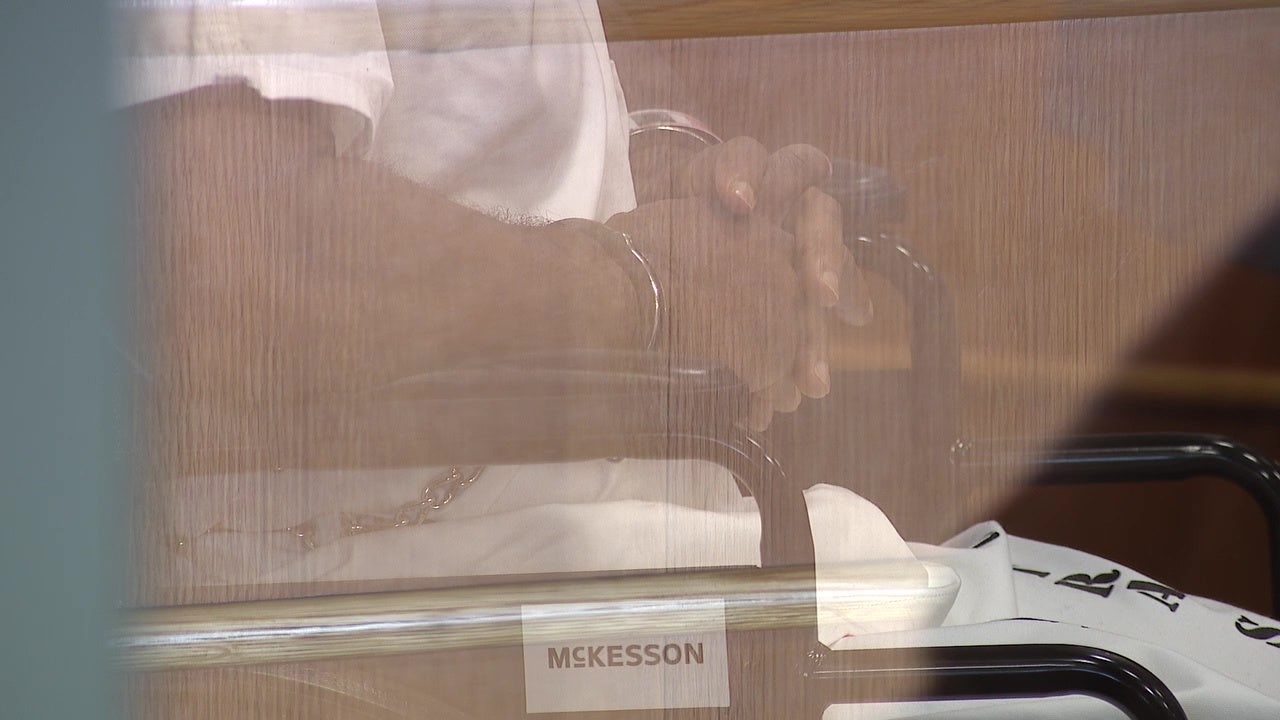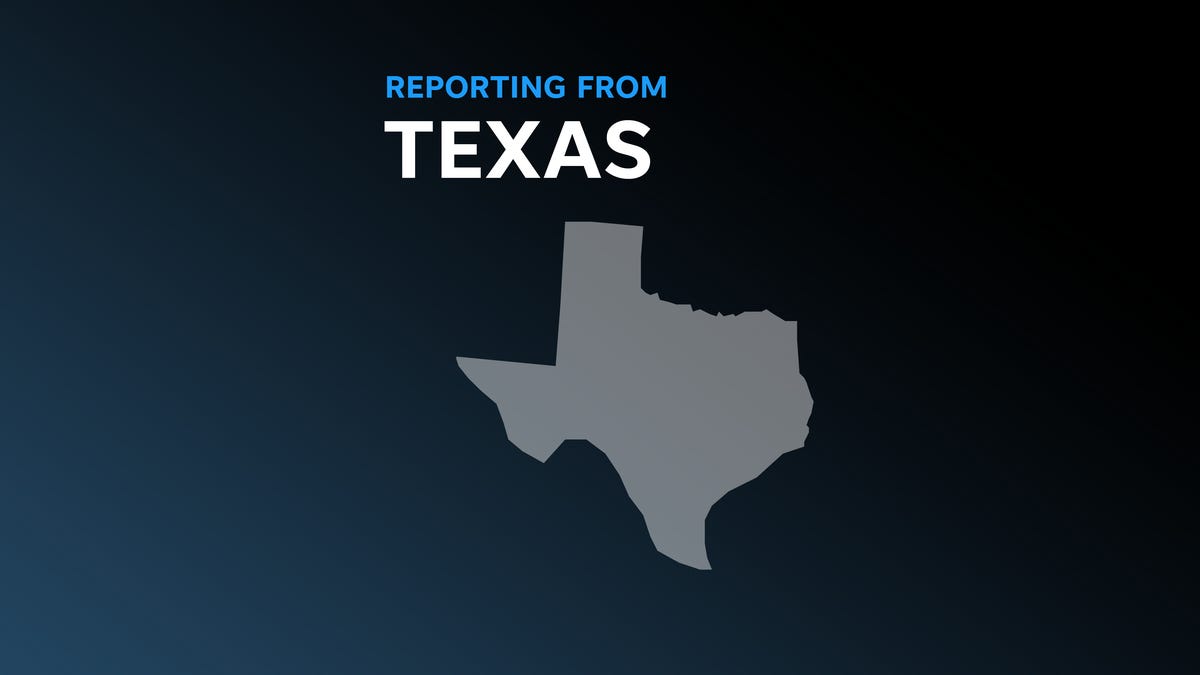World
Ecuador presidential candidates make final push to woo voters
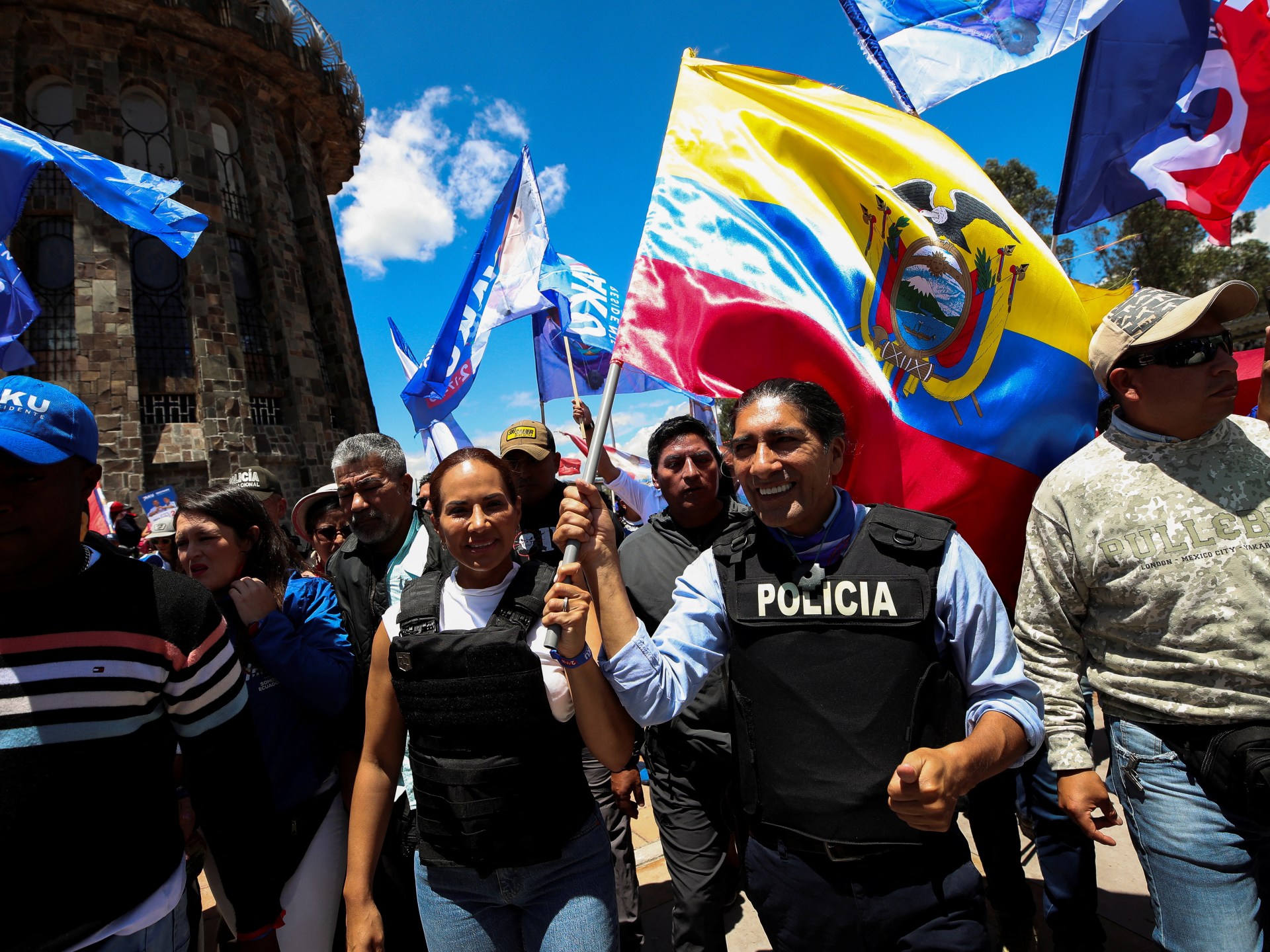
Candidates vying to be Ecuador’s next president are holding their final campaign events ahead of a presidential vote marred by the murder of anti-corruption candidate Fernando Villavicencio.
More than 13 million Ecuadorians are eligible to head to polls on Sunday when the presidency and seats in the National Assembly are up for grabs.
The snap elections were prompted by an unusual move from conservative President Guillermo Lasso, who became the first Ecuadorian leader to invoke “muerte cruzada”, a constitutional measure that allowed him to dissolve the legislature and bring his term to an end.
Lasso had been facing an impeachment proceeding, which he dismissed as politically motivated. But in the wake of his decision, candidates have stepped forward to replace him, pledging to fight crime and bolster the struggling economy.
Critics have blamed the sharply rising violence on drug traffickers and Ecuador’s unemployment woes. And the country’s recent insecurity was on display last week, when Villavicencio, a former investigative journalist and lawmaker, was gunned down while leaving a campaign event.
“The new government must be more [decisive] and courageous,” Milton Oleas, a 67-year-old undecided voter, told the Reuters news agency. “The president cannot doubt what they do and must be valiant in taking decisions.”
Homicides have more than tripled in the capital Quito over the past three years, and the coastal cities of Guayaquil and Esmeraldas have been ranked among the region’s most dangerous. Deadly prison riots have also broken out on a regular basis.
Presidential candidates, who have beefed up protections and kept their schedules limited since Villavicencio’s assassination, made combating crime a central theme in their final campaign stops.
Luisa Gonzalez, a protégé of former left-wing President Rafael Correa, held her closing event in Quito on Wednesday, with a large event also planned in Guayaquil on Thursday. She promised a tough-on-crime approach.
“A firm hand against crime, against violence and against crime gangs, but a hand of solidarity and love for our people,” Gonzalez said at the Wednesday rally, in which Correa participated remotely from Mexico.
Gonzalez was leading the polls ahead of Villavicencio’s murder, with about 30 percent support. If elected, she has promised to use $2.5bn from international reserves to shore up the struggling economy and bring back social programmes implemented under Correa, who has since been convicted of corruption.
“We will take control of the country. It is the time to lift up the homeland with dignity,” she said at the rally.
A presidential candidate needs 50 percent of Sunday’s vote, or 40 percent if they are 10 points ahead of their nearest rival, to win in the first round. Otherwise, a run-off between the two top vote-getters will take place on October 15.
Environmentalist Indigenous candidate Yaku Perez, who has been in the top five of the eight candidates in recent polls, pledged a government of the people during a Thursday morning rally in Quito.
“The people are here now building popular power. The people are building from the bottom up participative and ecological democracy,” Perez said. “We are committing to have zero tolerance for corruption, for organised crime, for all structural violence.”
Businessmen Otto Sonnenholzner and Jan Topic also have rallies planned in Guayaquil, where violence has been acute, and both have promised economic reactivation and security.
Villavicencio’s Construye party was set to hold a memorial event for him in Quito.
His replacement, Christian Zurita, whose candidacy was officially approved by the electoral council late on Wednesday, has promised to better equip the police and enshrine intelligence protocols to fight crime, using international loans to shore up social programmes.
Villavicencio was polling near the middle of the pack in the eight-candidate field.
Juanita Goebertus, director of the Americas division for Human Rights Watch, tied Villavicencio’s assassination last week to the ongoing instability in the country.
“This is a tragedy that was probably something people could expect, given the very serious deterioration of the security situation in Ecuador,” she told Al Jazeera.
“If you compare the homicide rate between 2021 and 2022, there’s an increase of over 80 percent.”
Earlier this month, several Ecuadorian voters told Al Jazeera that safety and security are their top priorities.
“What we want today is peace, nothing more,” said Raul Gonzalez, a 44-year-old construction worker in Quito.

World
Saudi executions rose sharply in 2024

World
Israel launches strikes in Yemen on Houthi military targets, IDF says
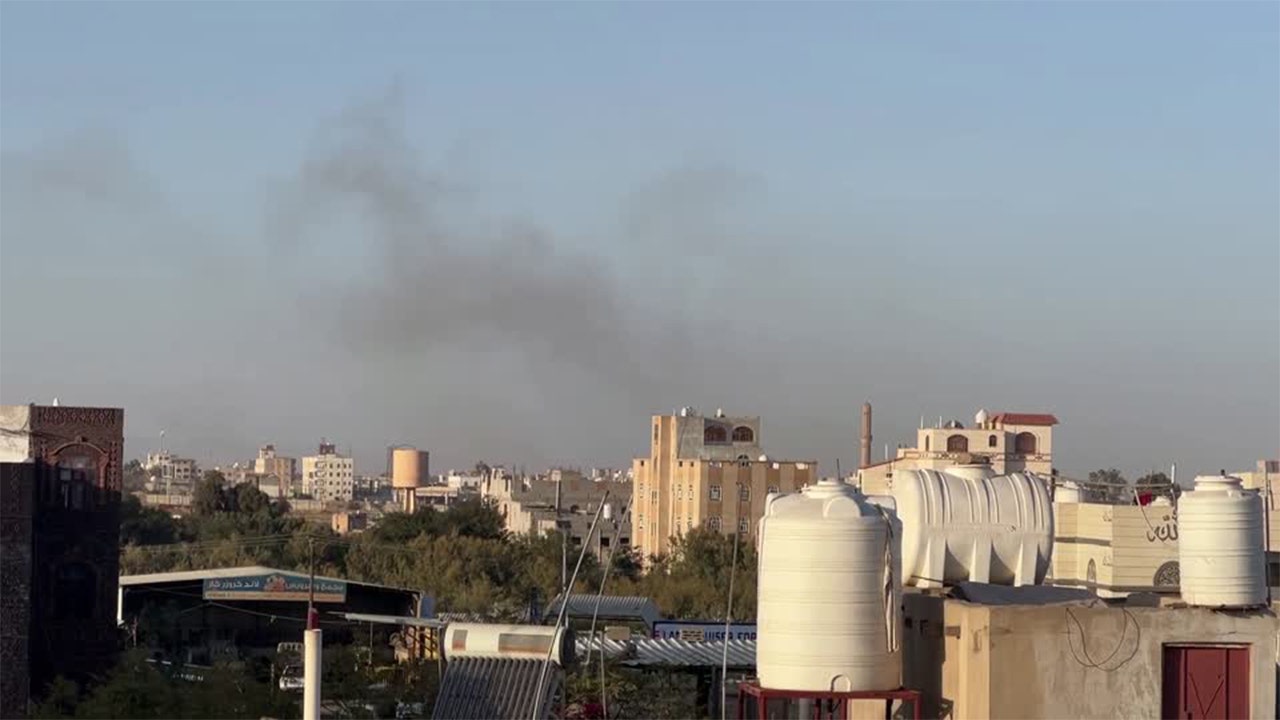
The Israeli military claimed responsibility for a series of airstrikes in Yemen on Thursday that hit Sana’a International Airport and other targets in the Houthi-controlled capital.
The Israel Defense Forces said the strikes targeted military infrastructure used by the Houthis to conduct acts of terrorism.
“The Houthi terrorist regime has repeatedly attacked the State of Israel and its citizens, including in UAV and surface-to-surface missile attacks on Israeli territory,” the IDF said in a statement.
“The targets that were struck by the IDF include military infrastructure used by the Houthi terrorist regime for its military activities in both the Sana’a International Airport and the Hezyaz and Ras Kanatib power stations. In addition, the IDF struck military infrastructure in the Al-Hudaydah, Salif, and Ras Kanatib ports on the western coast.”
PROJECTILE FROM YEMEN STRIKES NEAR TEL AVIV, INJURING MORE THAN A DOZEN: OFFICIALS
Black smoke rises near Sana’a International Airport in Yemen after reported Israeli airstrikes. (Reuters)
The strikes come days after Israel’s defense minister promised retaliation against Houthi leaders for missile strikes launched at Israel from Yemen.
Houthi rebels, who control most of northern Yemen, have fired upon Israel for more than a year to support Hamas terrorists at war with the Jewish State. The Houthis have attempted to enforce an embargo on Israel by launching missiles and drones at cargo vessels crossing the Red Sea – a major shipping lane for international trade.
US NAVY SHIPS REPEL ATTACK FROM HOUTHIS IN GULF OF ADEN
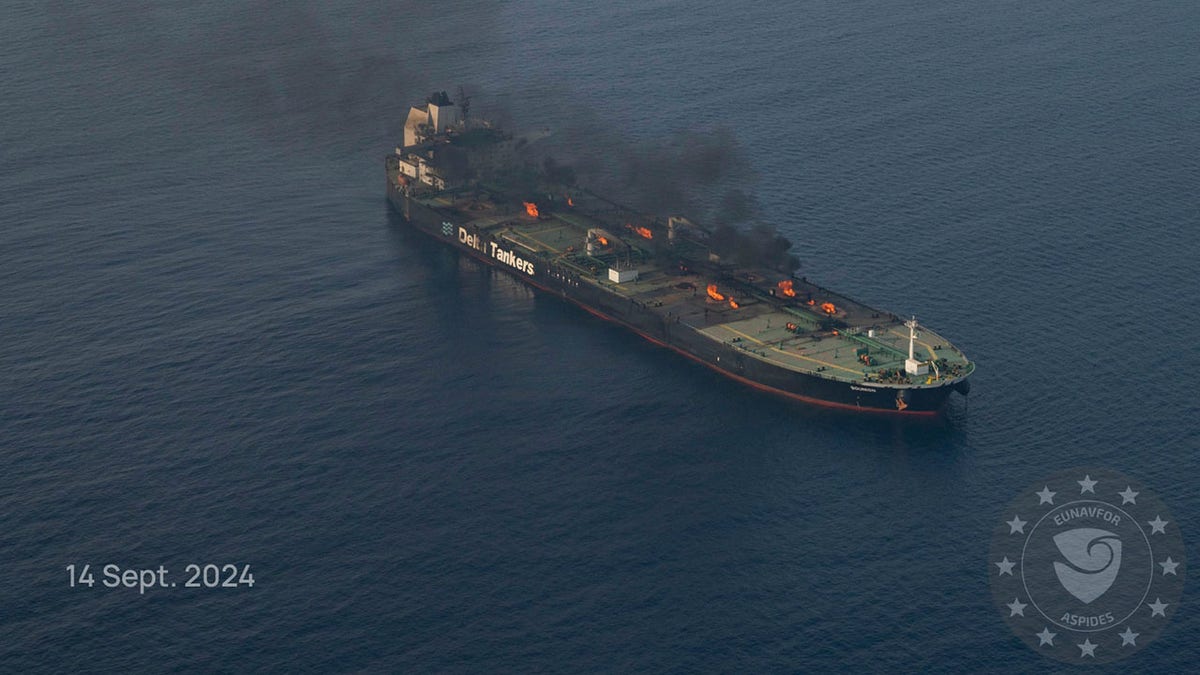
This photo released by the European Union’s Operation Aspides naval force shows the oil tanker Sounion burning in the Red Sea following a series of attacks by Yemen’s Houthi rebels, on Saturday Sept. 14, 2024. (European Union’s Operation Aspides via AP)
Overall, the Houthis have launched over 200 missiles and 170 drones at Israel since Hamas’s Oct. 7, 2023, massacre of 1,200 people. Since then, the Houthis have also attacked more than six dozen commercial vessels – particularly in the Bab-el-Mandeb, the southern maritime gateway to Egypt’s Suez Canal.
On Saturday, a projectile launched into Israel from Yemen struck Tel Aviv and caused mild injuries to 16 people, Israeli officials said. The incident was a rare occasion where Israeli defense systems failed to intercept an attack.
NETANYAHU WARNS HOUTHIS AMID CALLS FOR ISREAL TO WIPE OUT TERROR LEADERSHIP AS IT DID WITH NASRALLAH, SINWAR

Israeli Defense Minister Israel Katz looks on, amid the ongoing conflict in Gaza between Israel and Hamas, in Jerusalem, November 7, 2024. (REUTERS/Ronen Zvulun)
Israel retaliated by striking multiple targets in areas of Yemen under Houthi control, including power plants in Sana’a.
Israeli leaders have vowed to eliminate Houthi leadership if the missile and drone attacks do not cease.
On Monday, Israeli Defense Minister Israel Katz said, “We will strike their strategic infrastructure and decapitate their leaders. Just as we did to [former Hamas chief Ismail] Haniyeh, Sinwar and Nasrallah, in Tehran, Gaza and Lebanon – we will do in Hodeidah and Sanaa.”
Prime Minister Benjamin Netanyahu has also urged Israelis to be “patient” and suggested that soon the military will ramp up its campaign against the Houthis.
“We will take forceful, determined and sophisticated action. Even if it takes time, the result will be the same,” he said. “Just as we have acted forcefully against the terror arms of Iran’s axis of evil, so too will we act against the Houthis.”
Fox News Digital’s Amelie Botbol contributed to this report.
World
Retraction of US-backed Gaza famine report draws anger, scrutiny

United States President Joe Biden’s administration is facing criticism after a US-backed report on famine in the Gaza Strip was retracted this week, drawing accusations of political interference and pro-Israel bias.
The report by the Famine Early Warning Systems Network (FEWS NET), which provides information about global food insecurity, had warned that a “famine scenario” was unfolding in northern Gaza during Israel’s war on the territory.
A note on the FEWS NET website, viewed by Al Jazeera on Thursday, said the group’s “December 23 Alert is under further review and is expected to be re-released with updated data and analysis in January”.
The Associated Press news agency, quoting unnamed American officials, said the US asked for the report to be retracted. FEWS NET is funded by the US Agency for International Development (USAID).
USAID did not immediately respond to Al Jazeera’s request for comment on Thursday afternoon.
Israel’s war in Gaza has killed more than 45,300 Palestinians since early October 2023 and plunged the coastal enclave into a dire humanitarian crisis as access to food, water, medicine and other supplies is severely curtailed.
An Israeli military offensive in the northern part of the territory has drawn particular concern in recent months with experts warning in November of a “strong likelihood” that famine was imminent in the area.
“Starvation, malnutrition, and excess mortality due to malnutrition and disease, are rapidly increasing” in northern Gaza, the Integrated Food Security Phase Classification said in an alert on November 8.
“Famine thresholds may have already been crossed or else will be in the near future,” it said.
The report
The FEWS NET report dated December 23 noted that Israel has maintained a “near-total blockade of humanitarian and commercial food supplies to besieged areas” of northern Gaza for nearly 80 days.
That includes the Jabalia, Beit Lahiya and Beit Hanoon areas, where rights groups have estimated thousands of Palestinians are trapped.
“Based on the collapse of the food system and worsening access to water, sanitation, and health services in these areas … it is highly likely that the food consumption and acute malnutrition thresholds for Famine (IPC Phase 5) have now been surpassed in North Gaza Governorate,” the FEWS NET report had said.
The network added that without a change to Israeli policy on food supplies entering the area, it expected that two to 15 people would die per day from January to March at least, which would surpass the “famine threshold”.
The report had spurred public criticism from the US ambassador to Israel, Jack Lew, who in a statement on Tuesday said FEWS NET had relied on “outdated and inaccurate” data.
Lew disputed the number of civilians believed to be living in northern Gaza, saying the civilian population was “in the range of 7,000-15,000, not 65,000-75,000 which is the basis of this report”.
“At a time when inaccurate information is causing confusion and accusations, it is irresponsible to issue a report like this,” he said.
— Ambassador Jack Lew (@USAmbIsrael) December 24, 2024
‘Bullying’
But Palestinian rights advocates condemned the ambassador’s remarks. Some accused Lew of appearing to welcome the forced displacement of Palestinians in Gaza.
“To reject a report on starvation in northern Gaza by appearing to boast about the fact that it has been successfully ethnically cleansed of its native population is just the latest example of Biden administration officials supporting, enabling and excusing Israel’s clear and open campaign of genocide in Gaza,” the Council on American-Islamic Relations said in a statement.
The group urged FEWS NET “not to submit to the bullying of genocide supporters”.
Huwaida Arraf, a prominent Palestinian American human rights lawyer, also criticised Lew for “relying on Israeli sources instead of your own experts”.
“Do you work for Israel or the American people, the overwhelming majority of whom disapprove of US support for this genocide?” she wrote on X.
Polls over the past year have shown a high percentage of Americans are opposed to Israel’s offensive in Gaza and want an end to the war.
A March survey by Gallup found that 55 percent of people in the US disapproved of Israel’s actions in Gaza while a more recent poll by the Pew Research Center, released in October, suggested about three in 10 Americans believed Israel’s military offensive is “going too far”.
While the Biden administration has said it is pushing for a ceasefire in Gaza, it has rebuffed calls to condition US assistance to Israel as a way to bring the war to an end.
Washington gives its ally at least $3.8bn in military assistance annually, and researchers at Brown University recently estimated that the Biden administration provided an additional $17.9bn to Israel since the start of the Gaza war.
The US is required under its own laws to suspend military assistance to a country if that country restricts the delivery of American-backed humanitarian aid, but Biden’s administration has so far refused to apply that rule to Israel.
“We, at this time, have not made an assessment that the Israelis are in violation of US law,” Department of State spokesperson Vedant Patel told reporters in November despite the reports of “imminent” famine in northern Gaza.
-
/cdn.vox-cdn.com/uploads/chorus_asset/file/24924653/236780_Google_AntiTrust_Trial_Custom_Art_CVirginia__0003_1.png)
/cdn.vox-cdn.com/uploads/chorus_asset/file/24924653/236780_Google_AntiTrust_Trial_Custom_Art_CVirginia__0003_1.png) Technology6 days ago
Technology6 days agoGoogle’s counteroffer to the government trying to break it up is unbundling Android apps
-

 News7 days ago
News7 days agoNovo Nordisk shares tumble as weight-loss drug trial data disappoints
-

 Politics7 days ago
Politics7 days agoIllegal immigrant sexually abused child in the U.S. after being removed from the country five times
-

 Entertainment1 week ago
Entertainment1 week ago'It's a little holiday gift': Inside the Weeknd's free Santa Monica show for his biggest fans
-

 Lifestyle7 days ago
Lifestyle7 days agoThink you can't dance? Get up and try these tips in our comic. We dare you!
-
/cdn.vox-cdn.com/uploads/chorus_asset/file/25672934/Metaphor_Key_Art_Horizontal.png)
/cdn.vox-cdn.com/uploads/chorus_asset/file/25672934/Metaphor_Key_Art_Horizontal.png) Technology2 days ago
Technology2 days agoThere’s a reason Metaphor: ReFantanzio’s battle music sounds as cool as it does
-

 Technology1 week ago
Technology1 week agoFox News AI Newsletter: OpenAI responds to Elon Musk's lawsuit
-

 News3 days ago
News3 days agoFrance’s new premier selects Eric Lombard as finance minister
